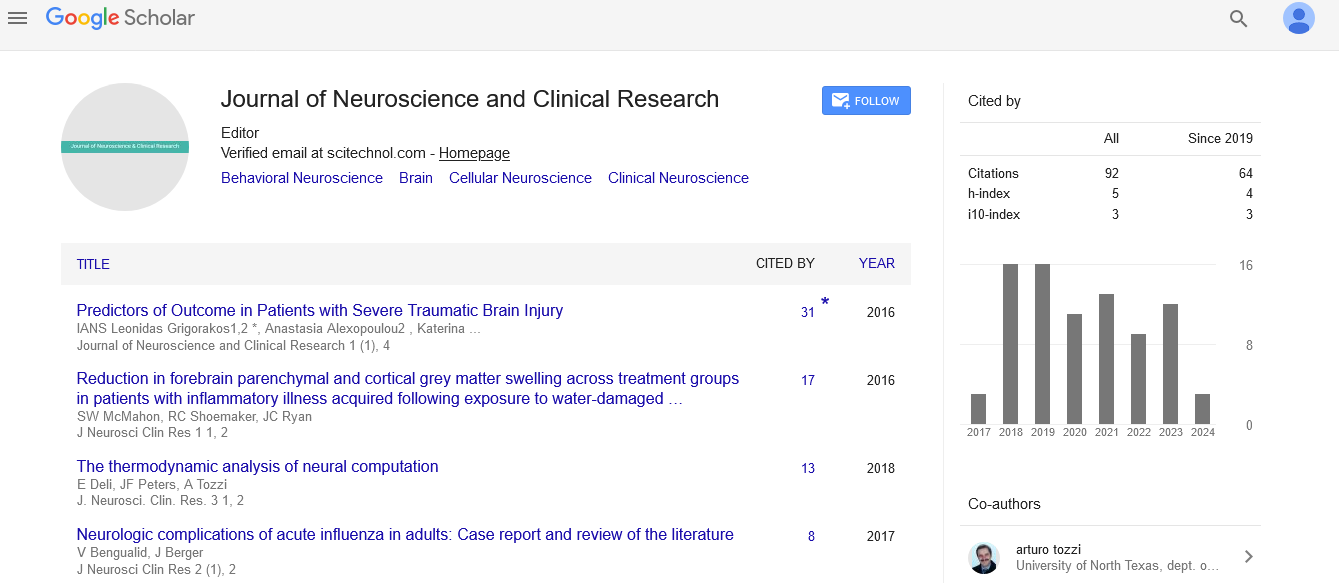Niacin as a Possible Preventative Drug for Blindness in Patients with Vascular Dementia: A Case Report
Jason Sendek
Briarcliff Manor, USA
: J Neurosci Clin Res
Abstract
Paracentral acute middle maculopathy (PAMM) is a condition impacting retinal blood flow characterized by ischemia affecting the deep capillary plexus often resulting in permanent blind spots. PAMM has been reported in association with retinal vascular diseases, and there is currently no acceptable treatment for PAMM. We report a case in which a patient experienced numerous episodes of blind spots over multiple years and was left with permanent blind spots in each eye. We prescribed OTC oral niacin based upon multiple reviews of the literature of different organ systems, which worked on numerous challenges in our patient, reversing his recurrent blind spots. In reviewing the literature, we concluded that the retinal blood flow is affected by niacin as it acts as a potent vasodilator. We reviewed numerous papers on other therapeutic benefits of niacin products, which has been proven to be beneficial for the brain and optic nerve based upon perfusion pressure and increased blood flow in small vessels. The loss of vision in patients with vascular dementia is a multifactorial issue resulting from decreased blood flow of the brain, optic nerve, retinal ganglion cells, and the occipital lobe. We hypothesize that oral niacin ER OTC taken at a safe dosage of 500 mg given once daily at bedtime, can be used a preventative drug for blindness in patients with vascular dementia, given its proven ability to open venous blood outflow from the brain and optic nerve. We promote the use of niacin ER because niacin can last for over 24 hours at a safe dose. Furthermore, niacin ER (vitamin B3) can be taken without prescription as a dietary supplement, which is safe, inexpensive, and can also help to prevent further deterioration of patients’ brains with vascular dementia.
Biography
Jason Sendek has worked closely with his mentor, Dr. Robert Josephberg, researching the potential for new therapeutic modalities for eye disease. A key objective of this research is to inform other physicians of these innovative approaches. Dr. Josephberg is an Associate Clinical Professor at New York Medical College, the academic affiliate of Westchester Medical Center, and he has been an attending physician at Westchester Medical Center for over 30 years, as well as the Chief of Retina Service for over 20 years. Mr. Sendek is currently a senior at Briarcliff High School in Westchester County, NY and will be attending Duke University starting in the fall of 2022.
 Spanish
Spanish  Chinese
Chinese  Russian
Russian  German
German  French
French  Japanese
Japanese  Portuguese
Portuguese  Hindi
Hindi 